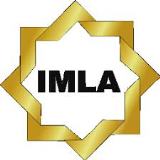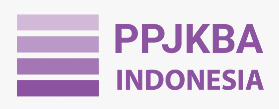SANKSI DALAM PERSPEKTIF FIKIH, PENDIDIKAN DAN PSIKOLOGI
DOI:
https://doi.org/10.21274/ahkam.2022.10.2.297-326Keywords:
Sanctions, Fiqh, Education, PsychologyAbstract
This study examines sanctions from the perspective of fiqh, education and psychology. The problem is that not all sanctions can have a deterrent effect on perpetrators of crime, and some perpetrators of criminal acts repeat the mistakes they have made. On the other hand, sanctions are seen as a form of retaliation for crimes committed. From these problems, the question arises of how to integratively review both the fiqh, educational, and psychological perspectives on sanctions. This research is a library research. Research materials were obtained through books and journals related to sanctions from a fiqh, educational and psychological perspective. After the collected data is processed by reviewing the existing materials based on the discussion studied and analyzed in a descriptive way. The results of the study found that in the perspective of fiqh there are three kinds of sanctions, namely qisas, hudud and ta'zir. According to an educational perspective, the imposition of sanctions is adjusted to the severity of the violation so that the perpetrator does not repeat the same action. Meanwhile, from a psychological perspective, prior to imposing sanctions, it is necessary to first seek clarification on the psychological condition of the perpetrator, victim and witness so that law enforcement officials can make the right decision.
References
Aibak, Kutbuddin, Metodologi Pembaharuan Hukum Islam, Yogyakarta: Pustaka Pelajar, 2008.
Ahmadi, Abu, dkk., Ilmu Pendidikan, Jakarta: PT Rineka Cipta, 2015.
Ali Hasballah, Ushul al-Tasyri‟ al-Islami, Mesir: Dar al-Ma‟arif, t.t.
Aziz, Wahib, “Sanksi Tindak Pidana Korupsi dalam Perspektif Fiqih Jinayat”, International Journal Ihya’ ‘Ulum Al-Din, Vol. 18, No. 2, 2016.
Damayanti, Sukses Menjadi Pendidik, Yogyakarta: Araska, 2016.
Daulay, Nurussakinah, Pengantar Psikologi dan Pandangan Al-Qur'an Tentang Psikologi, Jakarta: Kencana Prenadamedia Group, 2015.
Fransiska, “Tinjauan Fiqh Jinayah terhadap Tindak Pidana Penganiayaan yang Dilakukan Anak di Bawah Umur”, Al-Qānūn, Vol. 18, No. 1, Juni 2015.
Hasanah, Laila, “Perspektif Hukum Pidana Islam Terhadap Tindak Pidana”, ‘Adliya, Vol. 12, No. 1, Juni 2018.
Horne, Christine, The rewards of punishment: A relational theory of norm enforcement, Stanford, CA: Stanford University Press, 2009.
Indrakusuma, Amir Daien, Pengantar Ilmu Pendidikan, Surabaya: Usaha Nasional, 1993.
Jalaluddin, Mempersiapkan Anak Saleh, Jakarta: PT Raja Grafindo Persada, 2003.
Katsir, Ibnu, Tafsir al-Qur’an al- ‘Azhim, Beirut: Maktabah al Asyriyyah, 2000.
Kompri, Motivasi Pembelajaran Prespektif Guru dan Siswa, Bandung: Rosydakarya, 2015.
Lubis, Zulkarnain, Dasar-dasar Hukum Acara Jinayah, Jakarta: Prenamedia Group, 2016.
M. Marwan dan Jimmy, Kamus Hukum, Surabaya: Realiti Publisher, 2009.
Nata, Abuddin, Metodologi Studi Islam, Jakarta: Raja Grafindo Persada, 2012.
Purwanto, M. Ngalim, Ilmu Pendidikan Teoritis dan Praktis, Bandung: PT. Remaja Rosdakarya, 2007.
Rizanizarli, Teori-teori Pemindanaan dan Perkembangan, Kanun, 2008.
Sabiq, Sayyid, Fiqhussunnah, Beirut: Darul Fikr, 1992.
Samsul Ramli dan Fahrurrazi, Bacaan Wajib Swakelola Pengadaan Barang/Jasa, Jakarta: Visimedia Pustaka, 2014.
Setiawan, Budi Utomo, Fiqih Aktual, Jakarta: GIP, 2006.
Sunarto, “Konsep Hukum Pidana Islam Dan Sanksinya Dalam Perspektif Al-Qur’an”, Jurnal Komunikasi Antar Perguruan Tinggi Agama Islam KORDINAT, Vol. XIX, No.1, Tahun 2020.
Syaiful Bahri, Djamarah, Guru dan Anak Didik dalam Interaksi Edukatif; Suatu Pendekatan Teoritis Psikologis, Jakarta: PT. Rineka Cipta, 2005.
Thalib Hambali, Sanksi Pemindanaan dalam Konflik Pertanahan, Jakarta: Kencana, 2011.
Utaibah, Bahjat, Alfiqh Aljinaaiy Al-Islamy, Mesir: Departemen Kajian Islam, 2000.
Wardi, Muslich, Fiqih Jinayat, Jakarta: Sinar Grafika, 2004.
Zainuddin, “Disharmonisasi Hukum Islam Dan Hukum Nasional”, Batusangkar International Conference I, 15-16 October 2016.













